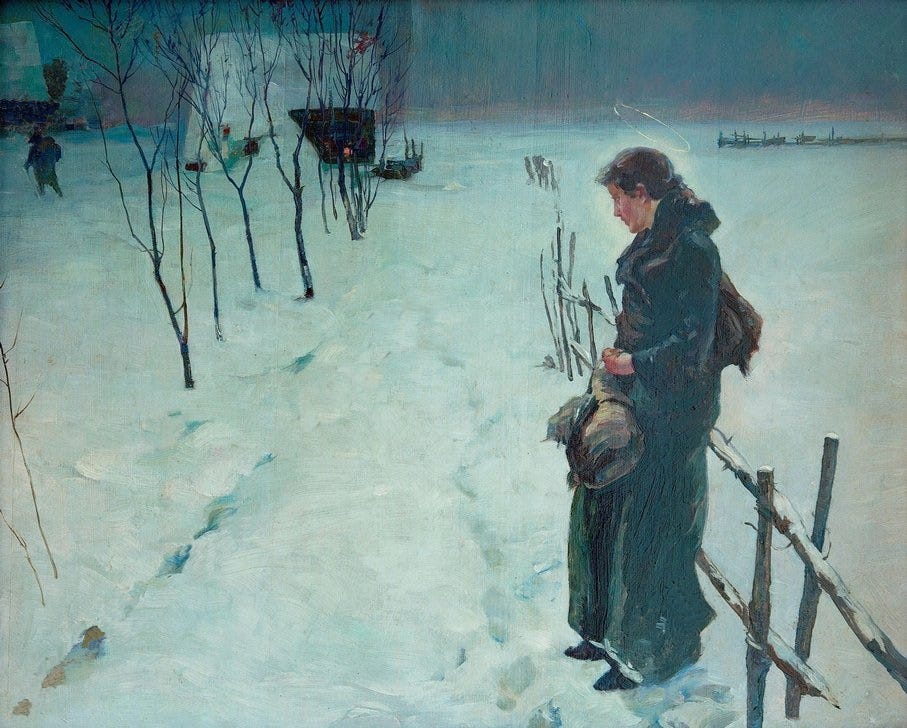Today’s Poem: The House of Christmas
The place where God was homeless / And all men are at home

The House of Christmas
by G.K. Chesterton
There fared a mother driven forth Out of an inn to roam; In the place where she was homeless All men are at home. The crazy stable close at hand, With shaking timber and shifting sand, Grew a stronger thing to abide and stand Than the square stones of Rome. For men are homesick in their homes, And strangers under the sun, And they lay on their heads in a foreign land Whenever the day is done. Here we have battle and blazing eyes, And chance and honour and high surprise, But our homes are under miraculous skies Where the yule tale was begun. A Child in a foul stable, Where the beasts feed and foam; Only where He was homeless Are you and I at home; We have hands that fashion and heads that know, But our hearts we lost — how long ago! In a place no chart nor ship can show Under the sky’s dome. This world is wild as an old wives’ tale, And strange the plain things are, The e…
Keep reading with a 7-day free trial
Subscribe to Poems Ancient and Modern to keep reading this post and get 7 days of free access to the full post archives.



